Korean Beef Radish Soup (Sogogi Muguk)
Korean Beef Radish Soup (Sogogi Muguk) is a light, home-style Korean soup made with tender beef and sweet Korean radish simmered in a clear broth. It comes together in about 30 minutes and makes the kind of cozy, everyday meal that tastes perfect with a bowl of warm rice.

Growing up, sogogi muguk (소고기무국) was one of the soups my mother made often. Its clear broth and gentle sweetness from the radish made it a family favorite—especially on cold days when something warm and soothing was needed.
In our home, this mild beef soup also had a special place during Jesa (제사), the Korean memorial ceremony honoring our ancestors. My mother would prepare it as part of the offering, and even as a child, I remember looking forward to having a bowl afterward. The taste was simple yet deeply comforting, and it still brings back those memories every time I make it.
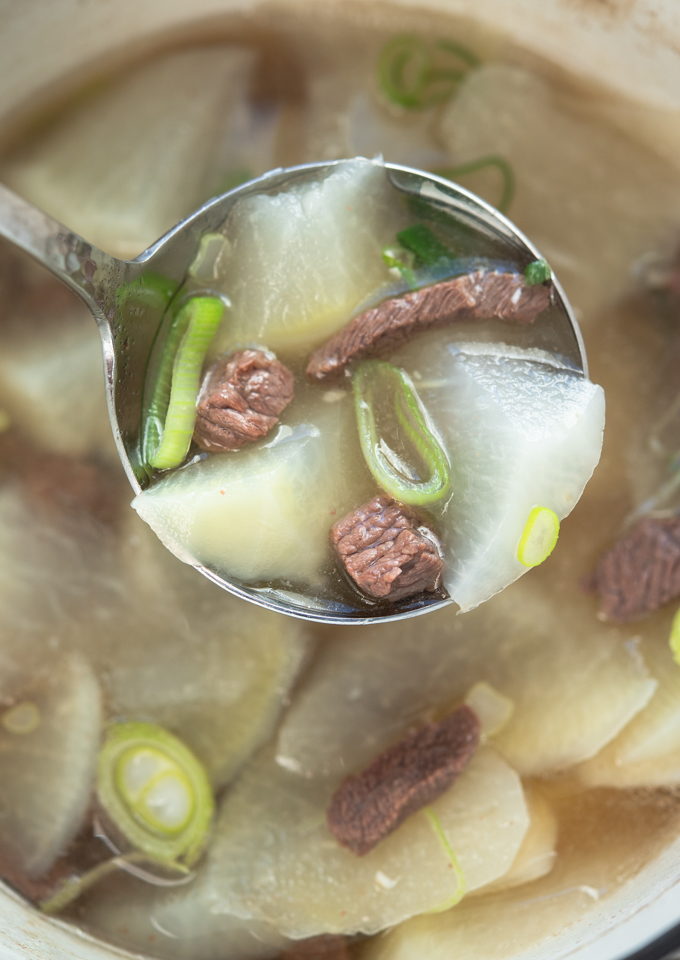
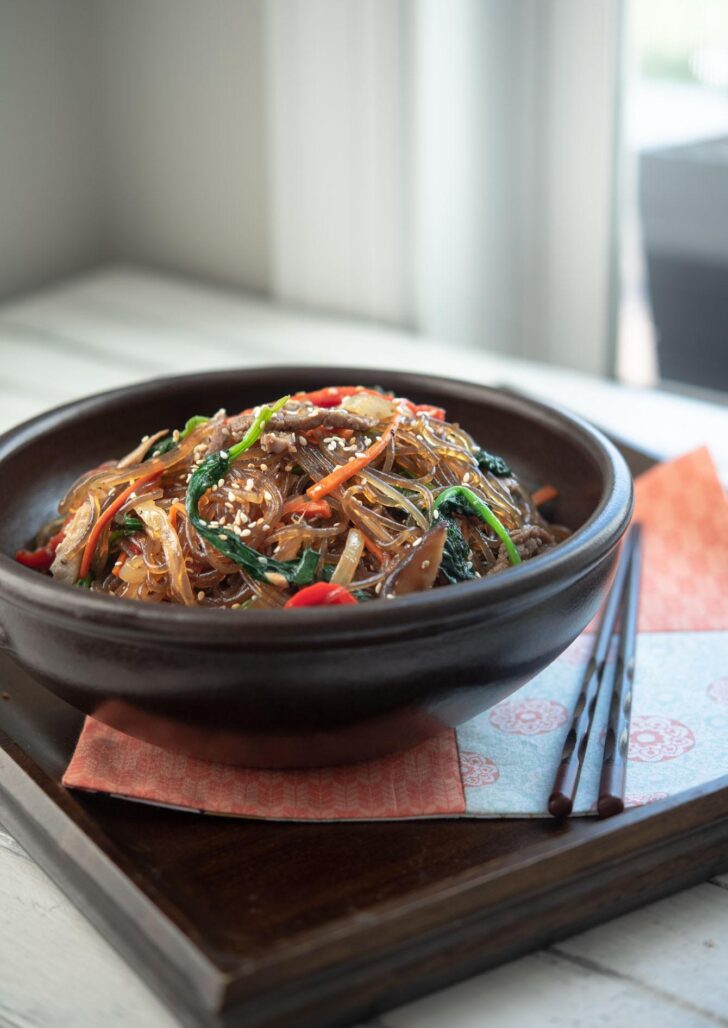
Get new recipes via email:
This soup is mild but deeply flavorful, making it perfect for both kids and adults. It’s also easy and quick to prepare, needing just simple ingredients and about 30 minutes.
When I want something nourishing but not heavy, this is always my go-to Korean soup recipe. You can find more cozy Korean soups and stews from my kitchen if you’re craving another warm bowl.
Why I Use Korean Radish (Not Daikon) in This Soup
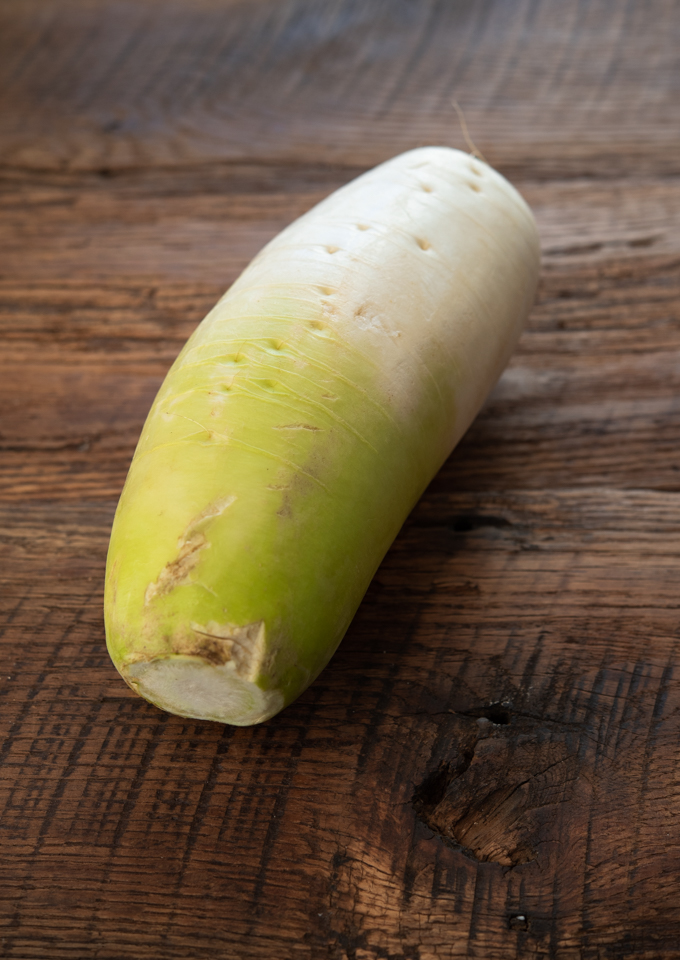
Korean radish (mu) behaves differently in broth than daikon, and that’s why I always reach for it when I make this soup. Mu stays crisp-tender even after simmering, and it gives the broth that gentle sweetness you only get from good winter radish.
It’s the same radish I rely on for Galbitang (Short Rib Soup), another clear beef soup where the flavor really depends on the radish itself.
If you have extra mu, this is also what I use for Kkakdugi (Cubed Radish Kimchi) — the crunchy, juicy banchan that often sits next to simple soups like this on a Korean table. Daikon works in a pinch, but the flavor is lighter and it softens faster, so the broth won’t have quite the same depth or home-style taste.
How to Make Beef Radish Soup: Step-by-Step
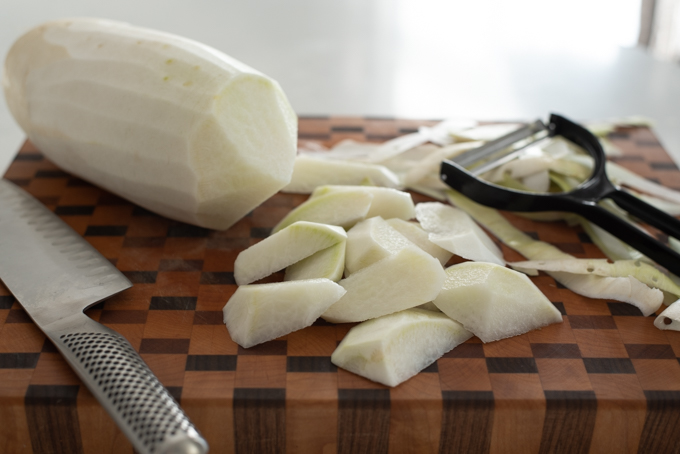
Peel the Korean radish and cut it into large, bite-sized pieces. In traditional Korean cooking, we often use free-form cutting rather than perfect cubes. The irregular shapes help the radish absorb more of the flavorful broth. If that feels unfamiliar, slicing into ¼-inch pieces works just as well.
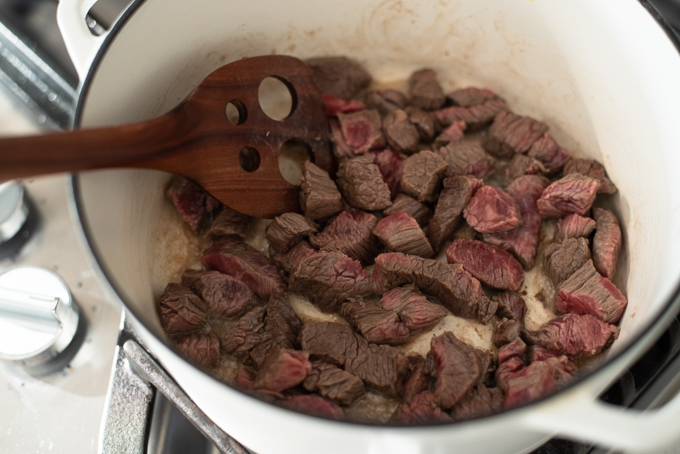
Start by sautéing the beef in a little sesame oil. This simple step builds a rich base flavor and removes any raw meat smell.
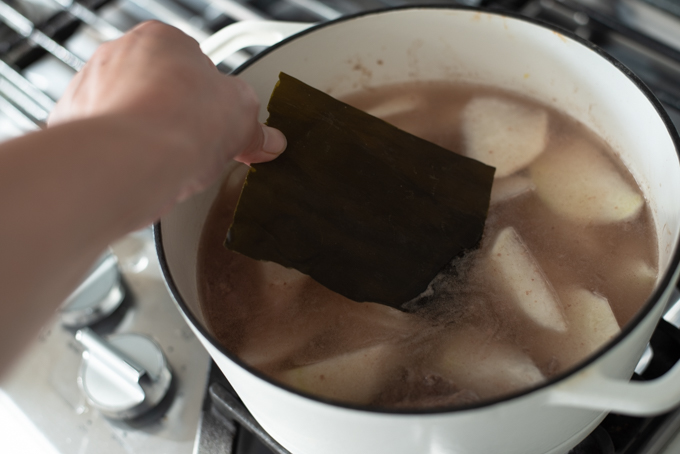
Once you add the radish and water, drop in a small piece of dried kelp (dashima) to deepen the umami.
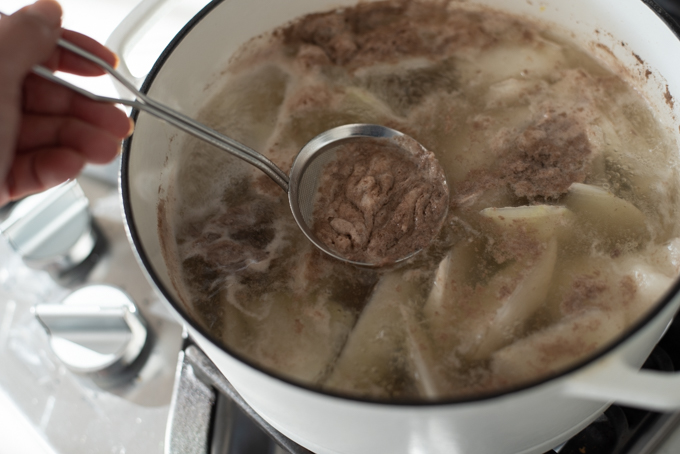
As the soup begins to boil, skim off the foam on top—this keeps the broth beautifully clear and helps remove any gamy odor from the beef. If you’re using daikon instead of Korean radish, simmer it a bit longer — it takes more time to release its sweetness.
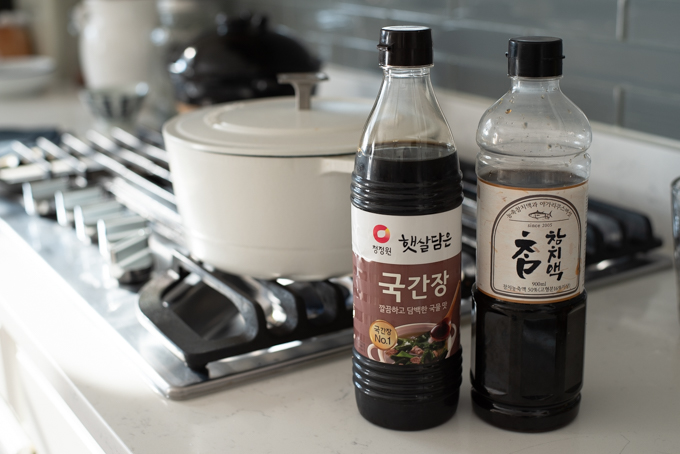
Season the soup lightly with Korean soup soy sauce (guk ganjang) and a touch of tuna sauce. This dish is all about balance and restraint; too much seasoning can muddy the clean taste. Adjust with a little salt at the end to fine-tune the flavor while keeping the broth clear and refreshing.

How I Serve This Soup at Home
I always serve sogogi muguk piping hot with a bowl of steamed rice on the side. At home, we usually spoon some rice right into the broth—it makes the soup feel even cozier, the way everyday Korean meals are meant to be enjoyed. A small dish of baechu kimchi is the classic pairing, and the crunch and acidity balance the clean beef broth perfectly.
If you love simple, everyday Korean soups, you might also enjoy my Kimchi Kongnamul Guk, a quick bean sprout soup with a bright, spicy broth.

Love this recipe? Rate it and share your experience in the comments below! On Instagram? Tag me to showcase your creation. For more delicious recipes, subscribe to our newsletter!
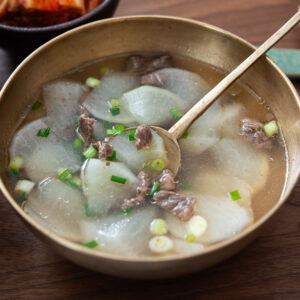
Korean Beef Radish Soup (Sogogi Muguk)
Recipe Video
Ingredients
- 3/4 lb (340 g) beef sirloin, small chunks
- 1-½ lb (680 g) Korean radish, peeled and cut into ¼-inch thick bite size pieces
- 1 tsp (5 ml) oil
- 1 tsp (5 ml) sesame oil
- 5 cups (1.2 L) water
- 1 large piece (about 10 cm) dried sea kelp (dashima)
- 1 tbsp (15 ml) minced garlic
- 1 tbsp (15 ml) Korean soup soy sauce (gukganjang)
- 1 handful (about 30 g) chopped Asian leek or green onion
- pinches (to taste) salt
- dashes (to taste) pepper
Instructions
- Heat oils in a 4 qt soup pot over med-low heat. Add the beef with a pinch of salt and cook until browned.
- Pour water, add radish and dried sea kelp. Cover with a lid and bring it to boil over med-high heat. When boiling, remove the sea kelp and discard.
- Using a small fine mesh strainer, scoop out scums floating on top. Reduce the heat to low and simmer for 15-20 minutes, covered.
- Add garlic and Korean soup soy sauce or tuna sauce. Add salt to season according to your taste.
- Add green onion, and pepper. Remove from heat and serve hot with rice and kimchi.

